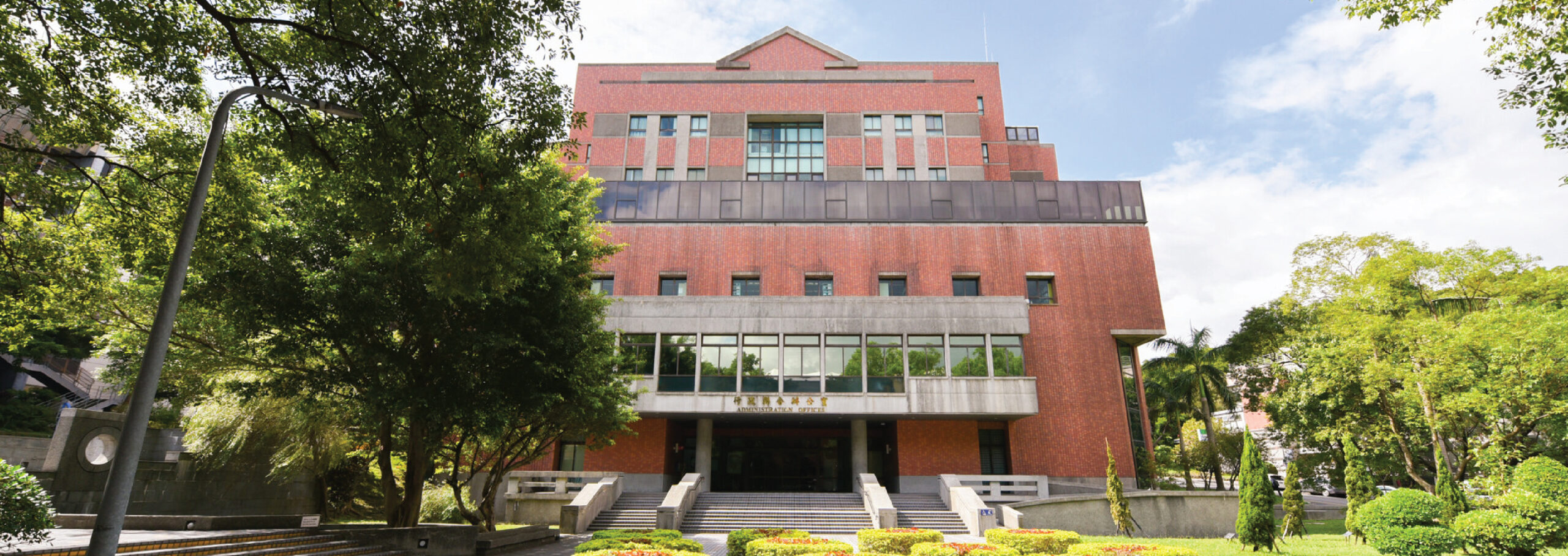
MISSION & OBJECTIVES
In our department we address a number of different problems posed by rapid climate change, social transformations, and growing inter-urban competition, all of which obstruct a sustainble growth of Taiwan. We have adopted an integrated approach to teaching and research that combines three major disciplines: (1) urban planning/design; (2) disaster management; and (3) Geographic Information Systems (GIS) (see figure below). We aim to develop a pool of highly-skilled professionals capable of integrating and applying their knowledge in community development, urban planning, and disaster prevention/mitigation. We aspire to become an important local node for professional networking and cooperation in the areas of environmental planning, design, and disaster management/mitigation in northern Taiwan. We also seek to establish ourselves as an important regional node connecting scholars from Taiwan, China, Hong Kong, and Macao.
Mission
The Department of Urban Planning and Disaster Management (UPDM) continues to deliver on its promise of integrating information technologies, urban planning and disaster management, whilst simultaenously preparing our students to excel in their professional field with a sense of responsibility, team spirit, and competitiveness. Through thoughtful adaptation of the ‘best practice’ models to our local communities, we also aim to contribute to a sustainable growth of Taiwan. Another way of giving back to our community is to develop into an important locus for teaching, research and networking in the areas of urban disaster management and spatial planning/design in northern Taiwan.
Goals
G1. Integration of urban planning/design , disaster management , and GIS
The Curriculum Planning Committee gradually adjusts the curriculum content for Year 1 and Year 2 students to enhance their understanding of our three core disciplines, that is, spatial planning/design, disaster management, and GIS. The key aim for Year 3 and Year 4 is to demonstrate the connectivity between these three disciplines, thus helping our students to develop into well-rounded professionals. Our curriculum is designed to meet the needs and demands of today’s job market. Thus from Year 2 we also offer practicums that integrate research and practice-led teaching.
G2. Facilitation of self-directed learning (SDL)
In order to facilitate self-directed learning, we have increased the number of elective courses in our department. In addition, we encourage student participation in extracurricular activities, and provide students with a wide range of opportunities for learning and international exchange. We have also developed a support system to assist our more vulnerable students, which enables them to plan their careers more effectively.
G3. Excelling in research and research-inspired teaching
We aim to enhance the quality and quantity of research outputs in our department. We particularly encourage those research projects that emerge from an industry-academic collaboration. By working together with local communities and the public sector, our researchers not only contribute to cultural, social and economic development of Taiwan, but also gain a valuable experience, which they can share with students and colleagues.
G4. Developing student professional skills and encouraging partnerships between faculty and students
During our annual practicums we encourage faculty members and students to participate in various national and international competitions, and to take part in academic or practice-based activities. This helps students to gain a more in-depth understanding of various issues surrounding their area of study and inspires them to act. Group work and frequent interactions with mentors not only enhance their professional knowledge and expertise, but also improve their communication, time management, and teamwork skills.
G5. Ensuring and contributing to the success of our alumni
We encourage our alumni to share their experience with our current students. We also collect and publish data on their performance, professional certifications, the percentage of successful completions, and the percentage of post-graduation employment. We seek to be recognized as a reputable institution for developing highly-skilled professionals in the fields of urban planning and disaster management. Accordingly, we seek to ensure that the information provided on our website is accurate and that our relationship with alumni association remains strong. For our current students, we offer employment counseling and provide opportunities for information exchange.
Our students are expected to obtain the following core competencies :
- Solid professional knowledge
- Practical professional skills
- Multidisciplinary knowledge and teamwork skills
- Critical thinking and problem-solving skills
- Project planning and management skills
- Effective self-expression
- Strong sense of social responsibility and global perspective
- A thirst for lifelong learning
Core objectives
- Cultivating student's research skills by introducing them to relevant theories and research methods
- Developing students’ professional skills and competencies via practice-led teaching
- Integrating disaster management and spatial planning disciplines to develop students into well-rounded professionals in the field
- Facilitating the sense of social responsibility and global perspective of our students through teaching and international exchange.
Teaching objectives
- Integrating spatial planning/design, disaster management/mitigation, and spatial geographic information technologies via practice-led teaching
- Enhancing self-directed learning
- Ensuring students’ competitiveness in the job market
- Excelling in research and research-inspired teaching
- Encouraging professional specializations and partnerships between faculty members and students
- Facilitating and maintaining relations with wider community
- Ensuring that our graduates are recognized and sought after by the public and private sectors